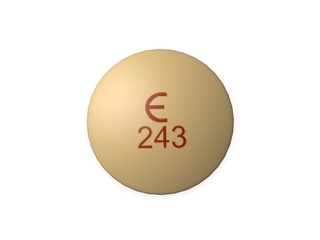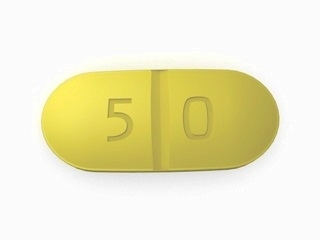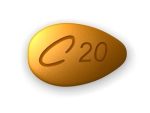Levothyrox for weight loss
Hypothyroidism is one of the most common pathologies of the endocrine system. Levothyroxine and its analogs are used to treat hypothyroidism of any etiology. The prevalence of hypothyroidism reaches 4-5%. Hypothyroidism was the first endocrine disease to be treated with replacement therapy.
You can buy levothyroxine from a trusted online pharmacy. Use promo code « offer15 » and get 15% off your first purchase.
The clinical picture of hypothyroidism depends on the duration and severity of thyroid hormone deficiency. A prolonged deficiency of thyroid hormones leads to a decrease in the rate of redox reactions, a decrease in the activity of anabolic and catabolic processes, and the accumulation of metabolic products. This leads to a disorder of the cardiovascular, central, and peripheral nervous systems. Hypothyroidism is characterized by mucosal edema caused by the accumulation of highly hydrophilic protein breakdown products in the extravascular space.
Hypothyroidism syndrome can mimic diseases of almost any system of the body. Clinical manifestations of hypothyroidism include swelling of the face and extremities, periorbital edema, dryness and yellowing of the skin, soreness, and hair loss on the head. And there may also be drowsiness, weakness, constipation, muscle pain, chills, and shortness of breath in the nose.
The likelihood of hypothyroidism is high in women over 40 years of age, in patients with elevated blood cholesterol levels and other endocrine diseases.
How to take Levothyrox
Levothyroxine is taken once a day in the morning on an empty stomach, at least 30-40 minutes before meals. Treatment of hypothyroidism is aimed at maintaining the levels of thyroid hormones in the body corresponding to physiological needs.
Side effects of levothyroxine
In postmenopausal women, bone density may decrease. Cardiac arrhythmias and possible ventricular hypertrophy. Dysmenorrhea, constipation, dryness, swelling of the skin, headache, lethargy, drowsiness, weakness, lethargy, and weight gain are common side effects. Other symptoms are chest pain, diarrhea, tachycardia, arrhythmia, fever, tremor, headache, irritability, leg cramps, nervousness, increased sweating, and vomiting. Tell your doctor if you have any of these symptoms. In this case, the doctor will adjust the dosage, and it is also possible to prescribe beta-blockers, intravenous glucocorticoids, and plasmapheresis.
How to reduce the risk of side effects when taking levothyroxine:
It is recommended to periodically determine the content of thyroid-stimulating hormone in the blood, the increase of which indicates an insufficient dose. The adequacy of thyroid suppressive therapy is also assessed by the suppression of radioactive iodine uptake. With a long-term multinodular goiter, a stimulating test with thyrotropin-releasing hormone should be performed before starting treatment. In most cases of hypothyroidism, the metabolic state should be restored gradually, especially in elderly patients and patients with cardiovascular diseases.
Before starting treatment, the possibility of hypothyroidism or pituitary hypothyroidism should be excluded. The drug contains lactose and should be used with caution in patients with congenital lactose intolerance.
In patients with cardiovascular disease, the drug should be used at low initial doses, slowly increasing and at long intervals with constant monitoring of the ECG.
In elderly patients and in the long-term treatment of hypothyroidism, treatment should be carried out with caution, starting gradually with low doses. For elderly patients, the initial dose is 25 mcg, then it is increased to a full maintenance dose within 6-12 weeks.
Levothyroxine for weight loss
Thyroxine is one of the main hormones produced by the thyroid gland. It activates the synthesis and breakdown of protein and improves the conversion of carbohydrates in cells. The purpose of thyroxine is to increase metabolism. That is why its synthetic analog levothyroxine has the ability to get rid of extra pounds, thereby accelerating biological processes. One tablet of the drug, depending on the dosage, contains 25, 50, 75, 88, 100, or 125 mcg of levothyroxine sodium. It also contains dextrin, microcrystalline cellulose, and calcium hydrogen phosphate dihydrate. 25, 50, 88 and 100 micrograms are the most common and convenient dosages.
Pharmacological action for weight loss
- Increases tissue oxygen demand.
- Accelerates the metabolism of lipids, carbohydrates, and proteins.
- Increases heat production (thermogenesis): increased sweating, and blood flow, which leads to an increase in the rate of fat burning.
- Removes puffiness and removes excess fluid from the body.
- Stimulating the activity of nerve cells increases the efficiency and endurance of a person, and reduces appetite and the need for sleep.
Side effects
While taking the drug, the following side effects may occur:
- violation of heart rhythm (arrhythmia, tachycardia, angina, extrasystole);
- diarrhea, vomiting;
- headache;
- violation of the menstrual cycle;
- increased blood pressure;
- allergic reactions;
- muscle tremors;
- increased excitability;
- insomnia, feeling of anxiety.
With prolonged use, osteoporosis may develop as excess thyroxine removes calcium from bones.
Taking this drug hormonal accelerates all metabolic processes, including lipids, but proteins are also lost along with fatty tissue. Thus, when losing weight, fat is lost and muscle is made up of protein.
Long-term use of levothyroxine significantly weakens the heart muscle. Therefore, before starting a course of taking the drug for weight loss, it is necessary to carefully analyze all the arguments for and against.













